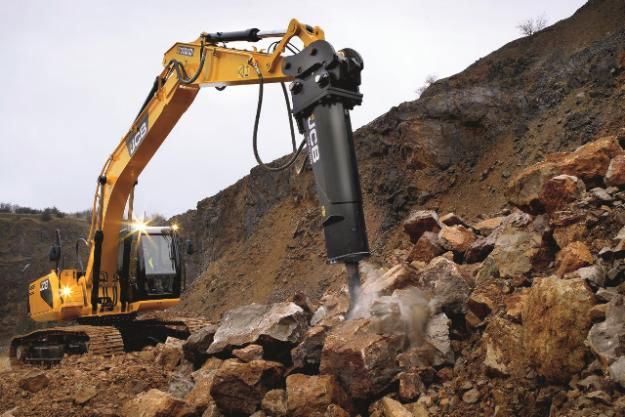Specialist Septic Ohio - Trusted Septic System Experts in Ohio
Specialist Septic Ohio - Trusted Septic System Experts in Ohio
Blog Article
Comprehensive Excavation Strategies: Understanding the Basics for Success
In the world of building and construction and civil design, the significance of effective excavation strategies can not be overstated. The careful planning, exact execution, and careful attention to information required in excavation tasks demand a detailed technique that encompasses various essential facets. From initial dirt evaluation to the implementation of precaution and routine progression surveillance, mastering these core elements is essential for attaining success in any kind of excavation undertaking. The real proficiency exists not simply in comprehending these fundamentals but in seamlessly integrating them to navigate the intricacies of excavation projects with finesse.
Recognizing Excavation Job Preparation

Successful excavation jobs are improved the structure of precise and extensive planning. The preliminary phase of any type of excavation task is the drawing board, where important decisions are made that can dramatically impact the result of the task. During this stage, it is vital to gather all pertinent info concerning the site, consisting of topographical surveys, dirt make-up, and any type of potential threats that may exist. Recognizing the project timeline, spending plan, and range constraints is vital for creating an extensive excavation strategy that guarantees the task's success.
One key element of excavation task preparation is the growth of a comprehensive timeline that outlines the series of landmarks, tasks, and deadlines. By meticulously taking into consideration all these aspects throughout the planning stage, excavation jobs can be executed effectively and properly, leading to successful end results - lancaster excavation.
Dirt Evaluation and Site Examination
Conducting detailed soil analysis and site analysis is a critical action in the prep work stage of any excavation job. Soil analysis includes figuring out the make-up, structure, and residential or commercial properties of the soil at the excavation website. This details is crucial for understanding the dirt's bearing ability, moisture content, and potential for erosion, which are crucial consider determining the excavation methods and devices needed for the job.
Website examination surpasses dirt analysis and incorporates a broader assessment of the overall site problems. This analysis consists of determining any type of potential dangers, such as below ground utilities, environmental issues, or unsteady surface, that can affect the excavation procedure. By completely assessing the website, job managers can develop effective excavation approaches that prioritize safety, performance, and ecological security.
Making use of innovative innovations like ground-penetrating radar, soil tasting, and drone studies can improve the accuracy and efficiency of soil evaluation and website evaluation. Investing time and sources in these initial steps can inevitably save time and avoid costly hold-ups or difficulties during the excavation process.
Devices Selection and Usage
Effective excavation jobs count greatly on strategic tools selection and usage to make certain optimum performance and performance. Selecting the ideal devices for the work is critical in taking full advantage of effectiveness and lessening downtime. Elements such as the type of soil, deepness of excavation, and job range play a considerable function in determining the most suitable tools for the task at hand.

Along with picking the suitable devices, proper application is key to project success. Operators needs to be educated to handle the equipment safely and efficiently - lancaster trenching. Regular upkeep checks and prompt repairs help prevent break downs and make certain consistent efficiency throughout the task
Precaution and Laws Conformity
In the realm of excavation projects, focusing on safety procedures and conformity with laws is extremely important to guaranteeing a secure and legitimately sound functional environment. Precaution incorporate an array of methods, including performing thorough site assessments, implementing correct signage and obstacles, and supplying appropriate safety training for all employees associated with the excavation process. Adherence to policies, such as OSHA requirements in the USA, guarantees that the excavation project satisfies the required criteria to safeguard employees, onlookers, and the surrounding environment.

Tracking Progress and Adjusting Strategies
How can predict supervisors properly track the improvement of excavation jobs and adapt their methods as necessary to optimize outcomes? Tracking progress is essential for guaranteeing that excavation projects remain on track and satisfy deadlines. Job managers can utilize various devices and techniques to track progression, such as day-to-day progress reports, normal site examinations, and advanced monitoring modern technologies like drones and GPS tracking systems. By continually checking the job's innovation, supervisors can identify any kind of potential hold-ups or problems at an early stage and take aggressive steps to resolve them.

Conclusion
In final thought, mastering the fundamentals of comprehensive excavation approaches is crucial for the success of any kind of job. By understanding job planning, analyzing dirt and site problems, selecting ideal devices, conforming with safety guidelines, and keeping an eye on progress, project managers can make sure a reliable and smooth excavation process. Carrying out these approaches will bring about successful end results and reduce possible dangers or obstacles during the excavation job.
The first phase of any type of excavation project is the planning stage, where crucial choices are made that can considerably influence the result of the job. Recognizing the project scope, spending more info here plan, and timeline constraints is vital for creating an extensive excavation strategy that ensures the task's success.
How can forecast managers successfully track the innovation of excavation tasks and adjust their strategies accordingly to optimize outcomes? By closely blog checking progression and being willing to adapt strategies, task managers can boost the total success of excavation projects.
By understanding project planning, assessing soil and website problems, picking ideal tools, conforming with security guidelines, and keeping an eye on progression, job managers can make sure a effective and smooth excavation procedure.
Report this page